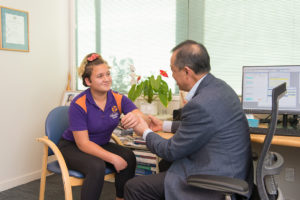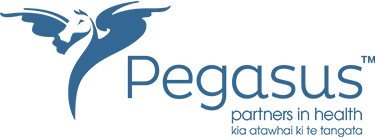
The Pegasus Small Group education programme was established in 1992 for primary care health professionals in Canterbury, New Zealand, to support best practice through independent, evidence-informed, peer-led professional development. It is a participative, reflective model of learning.
This session will be held on Wednesday 15 September at 6.30pm (UK time)
The taster session is an opportunity to engage with a recently developed Small Group topic Persistent Pain – Changing the Narrative.
Introduction: Dr Matthew Walmsley South Tyneside CCG – exploring the Pegasus Small Group model of learning for South Tyneside CCG
Experience a Small Group topic: Persistent Pain – Changing the Narrative. The session will be facilitated by Dr Ben Hudson, GP and Clinical Leader for Education at Pegasus Health (and former South Tynesider).
Q&A discussion: Dr Matthew Walmsley, Dr Ben Hudson and Louise Kennedy, Service Manager Pegasus Health Clinical Quality and Education
Presentation: View the Persistant Pain presentation (PDF)
Read more about the programme (PDF) or watch a video giving the background to the Small Group programme.
About the topic
Pain is an output from the brain secondary to interpretation of sensory input. Persistent pain is thus influenced by context: multiple biopsychosocial factors affect immune and stress responses altering the experience of pain. Osteoarthritis (OA) is an example of persistent pain that is affected by the ‘whole person condition’. Consideration of factors that modulate inflammatory processes, tissue sensitivities and behavioural responses is necessary.
Management of OA can be improved by holistic collaboration with the patient and the primary health care team. This includes minimising iatrogenic harm by avoiding the use of words that have negative connotations and by prudent use of imaging to avoid sending patients on a negative trajectory e.g. changing the narrative from joint ‘wear and tear’ to ‘wear and repair’, pre-emphasising normal age related radiological changes.
Learning outcomes
After completing the pre-reading and attending this Small Group meeting, participants will be able to:
- Describe persistent pain and how it is influenced by multiple biopsychosocial factors
- Assess elements that contribute to an individual’s pain using the holistic approach to health and wellbeing and discuss how they can be addressed
- Recognise how your interaction with a patient can positively or negatively affect a patient’s journey
- Explain how imaging correlates poorly with level of pain or loss of function
- Review the current evidence for medications and surgical interventions and understand their limitations
- Identify inequity and outline ways to reduce barriers contributing to persistent knee pain
Supporting material
- We recommend that you do the pre-reading before attending the session – download pre-reading (PDF)
- Information in this document will support the discussion at the session – download supporting Persistent Pain information (PDF)
- View the Presenter’s notes (PDF)
- Let us know what you thought of the session by providing your feedback
